Trigger warning: Mention of accident and injury
Sandy Khanda (28) believes each day should be lived like one’s last. From where does this epiphanic attitude stem from? A “near-death experience” in 2016, he responds.
Following a bad road accident, the third-year engineering student was confined to the ICU for four months and consequently sentenced to 16 surgeries — including repair of a damaged colon, bladder, right hand and left thigh.
“My doctors had given me a one percent chance of survival. They had asked my family to prepare for the worst,” he shares. But, to everyone’s surprise, Sandy, who was on the brink of death, began to show signs of improvement. In the months that followed, his body co-operated with the medicines.
Science and immense goodwill, he says, put him on the road to complete recovery, which spanned a year.
While the Gurugram native resumed his engineering studies once out of the hospital, the incident left a transformative impact on him. It led Sandy to start the Green Pencil Foundation in 2019 — a non-profit attempting to create a difference in India through its verticals of education, menstrual hygiene, and climate advocacy.
‘Periods of Pride’: Dismantling taboos around menstruation
Not long ago, in the Shamlo Kalan village in Haryana’s Jind district, farmers were battling a faceless evil; their fields reeked of a staunch odour. An inspection led Sandy to the source — used sanitary pads disposed of in the open. But before jumping the gun to blame the culpable women, Sandy urges us to train our gaze on the bigger picture — period poverty.
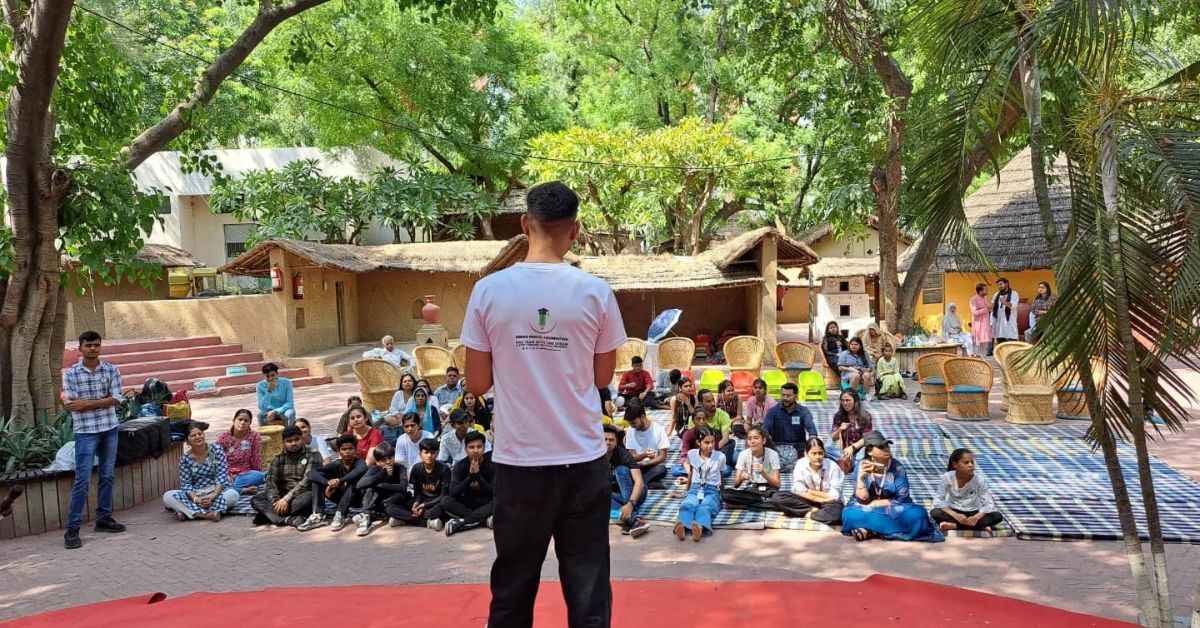
According to the World Bank, on any given day, more than 300 million women around the world are menstruating. In total, an estimated 500 million lack access to menstrual products and facilities for menstrual hygiene management (MHM). Access to pads is one of the major challenges.
“And when young girls and women in these rural areas do manage to access sanitary pads, the next challenge becomes how to dispose of them,” Sandy explains. As many of the women relayed to him, most areas in India’s hinterland lacked garbage collection facilities and recycling. “So, their only resort was to dump the soiled pads in the fields,” he learnt.
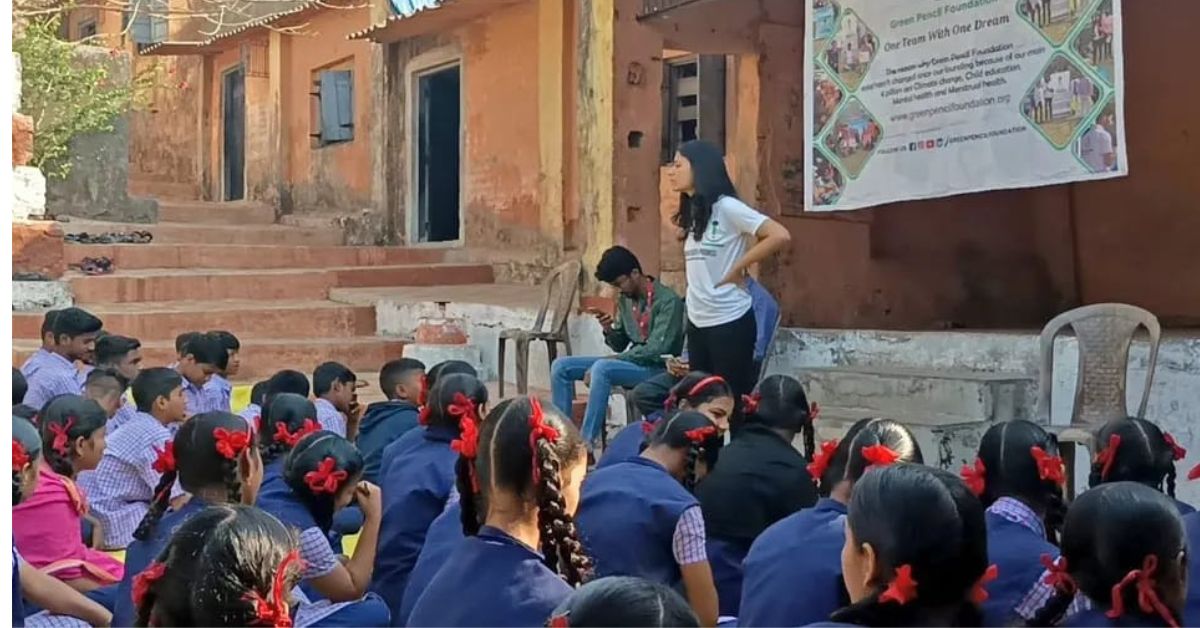
As the Green Pencil Foundation expanded the footprint of its advocacy work across the country, Sandy learnt that, what he assumed to be a problem rampant in Haryana, was also prevalent in villages of Punjab, Maharashtra, and Himachal Pradesh.
Farmers in these regions were distraught. While the odour was unbearable, it was one in a series of problems. “The farmers explained to me that when used pads lay in the field for long periods, they affected the fertility of the land and led to diseases.” To add to this, the non-compostability of the pads made them a concerning pollutant.
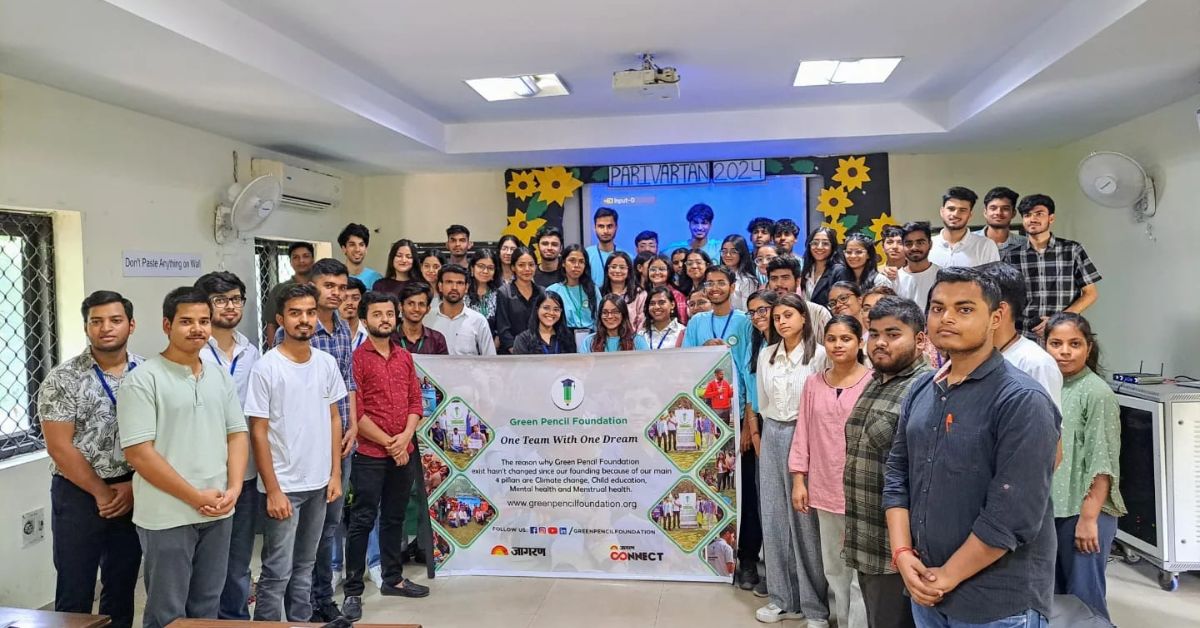
Channelling his foundation’s advocacy towards ensuring women’s access to sanitary pads wasn’t a viable solution. Sandy deduced that true change would only be possible when the practice of non-degradable pads was ousted and substituted with eco-friendly alternatives.
“So, we introduced cloth pads. These can be reused multiple times after washing. Economically and environmentally, we thought this would be a good option,” Sandy informs. ‘Periods of Pride’ not only ushers in a new era with their pads but also seeks to ring in a new mindset by deconstructing regressive attitudes around menstruation.
‘Inspired by the women in my life’
When a man [Sandy] walks into a village and speaks to its women about periods, he is usually met with radio silence and lowered gazes. So, when that man can say that he has influenced 2,00,000 teenage girls and women, it is a matter of pride and intrigue. The latter is because one would wonder how he achieved success.
Sandy describes a typical workshop. “Usually, when we start off, even the word ‘period’ is taboo. So, we begin by addressing what a period is. We tell girls who haven’t begun menstruating by what age they should normally expect theirs. We help those who are actively menstruating with how to manage their periods, how to manage exercise in those days and stay hydrated.”
All conversations are medically backed by the team of gynaecologists that is part of ‘Periods of Pride’. The sessions are not confined to theory but also hands-on workshops.
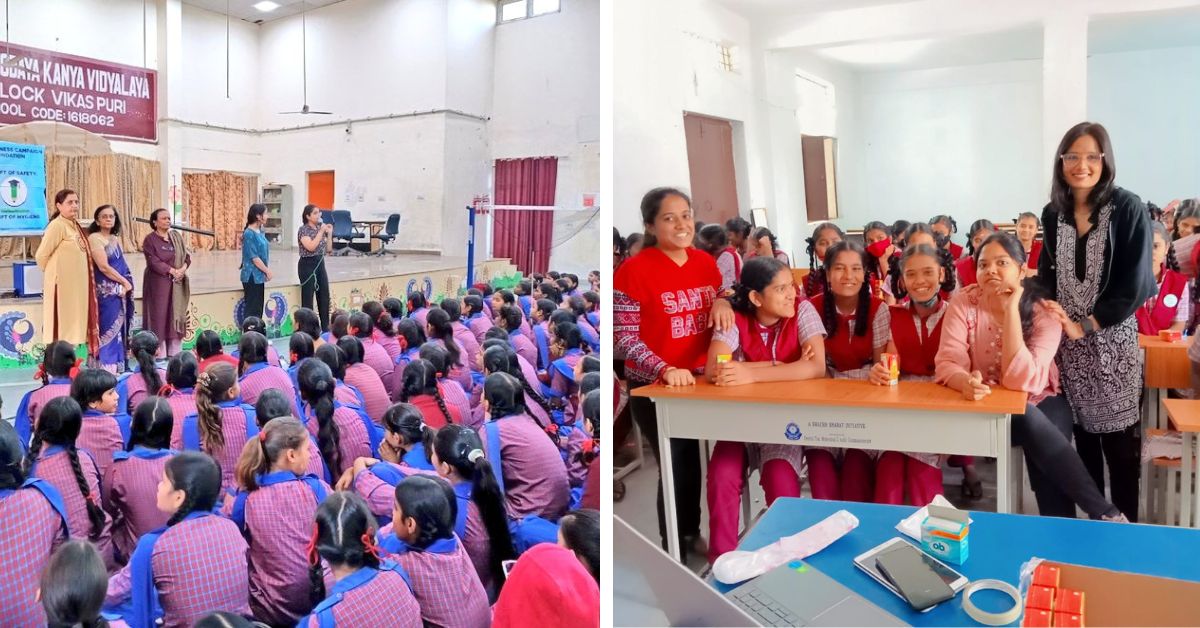
The first step, Sandy says, is dissociating the shame that is attached to the subject of menstruation. Through the initiative, he envisions a future where menstrual health is no longer a taboo subject in India but instead a fundamental part of curriculums in all schools, both in urban and rural areas.
Sandy’s keenness in the subject has its roots in his childhood. “I remember in Class 7, a classmate of mine got her period. The boys did not know the reason for her bleeding and began making fun of her, assuming that sex had caused her to bleed.” That day, a 12-year-old Sandy made his way back home with a question for his mother. “Why do you and didi not speak about periods? Is it something secret?”
The stereotype etched into the discourse around menstruation became evident to him. So, today, he is proud to see the ripples of Periods of Pride being catapulted across 200 slum areas in over 26 cities of India.
A changemaker is born
A farmer’s son, Sandy grew up in the village of Khanda. His childhood was spent helping his father take care of the paddy. Growing up in Haryana, he would often hear of female foeticide, patriarchy and taboo around menstrual health.
Ascribing his entrepreneurial relevance to his roots, he says, “I wanted to do something about these issues but I did not have the courage or resources back then. I grew up in a middle-class family where I was taught that I needed to make a career. But the accident changed everything. I saw this as the second chance that I was given to serve my community; a chance to utilise my life to make a difference.”
While the Periods of Pride focuses on menstrual health, the ‘Slum to School’ initiative is present in 26 slums in Delhi, and has been instrumental in enrolling 62 children in schools.
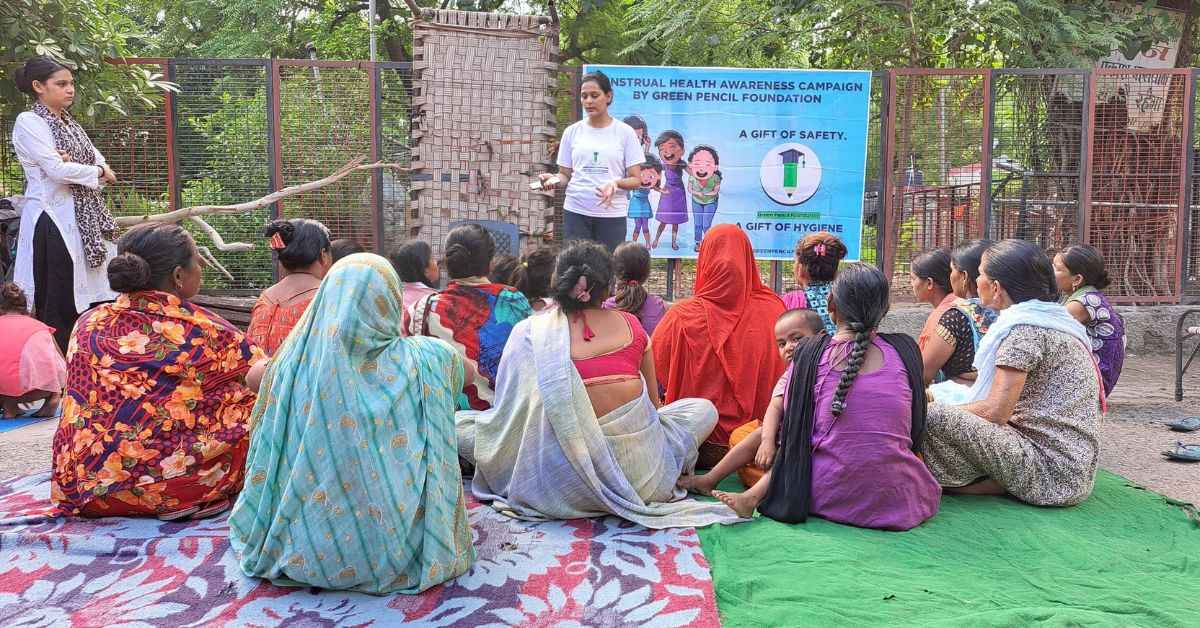
“There are many government schools where education and books are provided free of cost, as well as midday meals. However, parents in slum areas are not familiar with these policies. So, instead of coaxing their children to go to schools, they make them collect garbage for a small amount of money,” Sandy explains.
Sandy and his team visit these shanties. They go from door to door, urging parents to send their children to school. In cases where the child needs to be brought up to speed with his/her classmates, Sandy and his team conduct remedial teaching that spans six months.
The third arm of the Green Pencil Foundation is the one directed towards climate change.
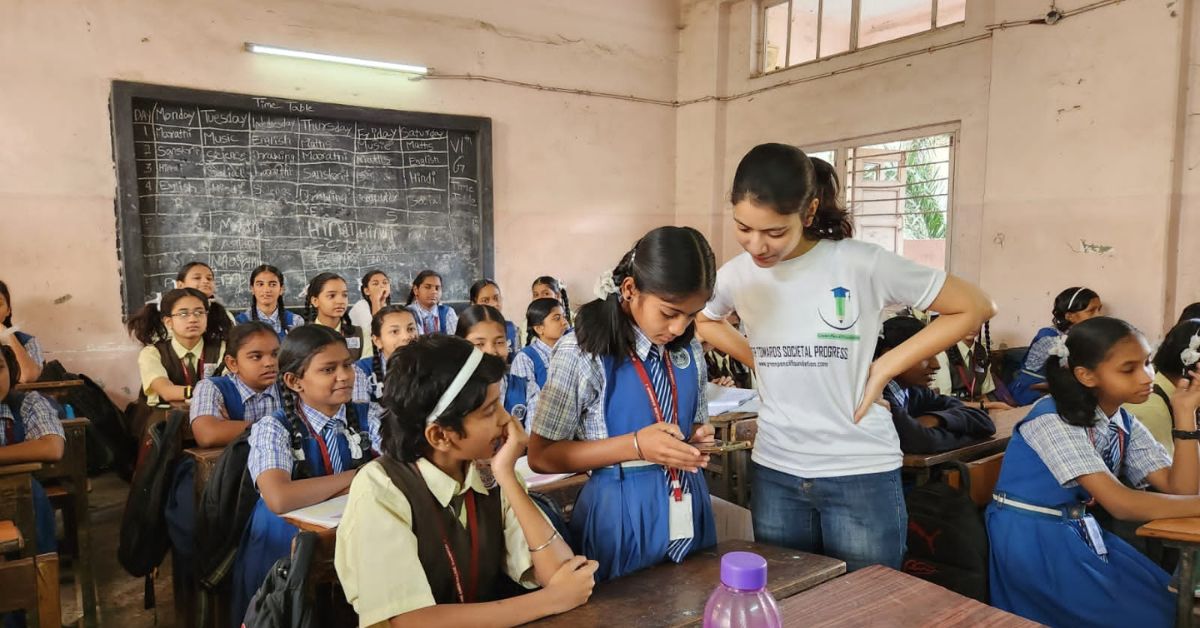
The team conducts workshops educating children about sustainable habits within their homes. “For example, using cloth bags instead of polythene bags; metal bottles instead of plastic bottles; and public transport instead of private vehicles. All actions are directed towards reducing carbon footprint.”
Sandy adds, “We also urge them to ask their parents to move towards renewable energy, adopt solar panels and thus minimise their electricity bill.”
The change in mindsets is palpable in the villages where Sandy has carried out his advocacy. For Sandy, even a single village embracing a new perspective on menstruation through his workshops is a true success.
Sources
Menstrual Health and Hygiene by World Bank, Published on 12 May 2022.
Edited by Pranita Bhat

No comments:
Post a Comment